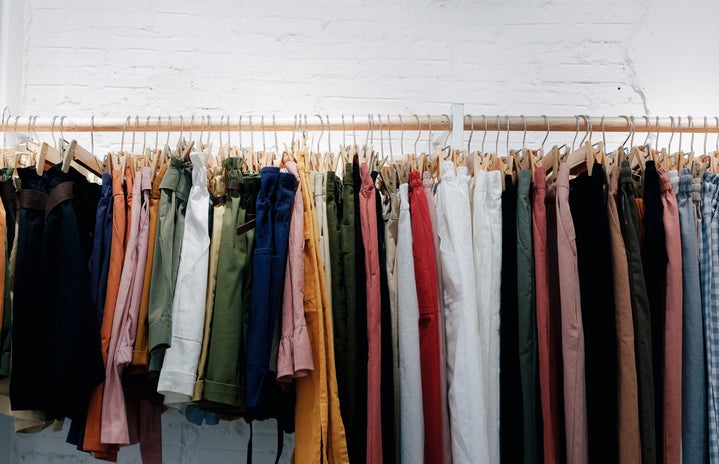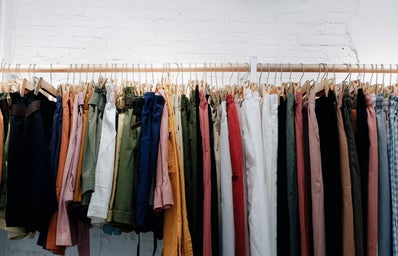The definition of fast fashion is the mass production of clothing that represents the latest trends at high speeds and low costs, in order to maximize profits. Essentially, it is cheap, fast, and mass-produced clothing in order for companies to sell trendy clothes. Let’s break down the four elements of fast fashion.
- Cheap
-
Fast fashion is very cheap to make because they typically use low-quality material and cheap labor. The goal of the manufacturer is not to produce clothes for the consumers, but rather to make a profit by selling clothes. In some cases, manufacturers even cause human rights and environmental abuses.
- Quick
-
Fast fashion is quick to produce — because they have to be, with trends changing very frequently. In order for stores to stay relevant, they need to keep up with the trends. In addition to this, they are able to use consumers’ insecurities of “fitting in” to keep them buying fast fashion.
- Trendy
-
Fast fashion and trendy go hand in hand. Similar to as stated above, stores want to stay trendy so that consumers come and shop, and in order to do that they have to be trendy. Social media, such as Instagram and Tiktok have made the lifespan of trends much faster than they used to be. This is why fast fashion is becoming more prevalent over the past couple of years.
- mass produced
-
If something is trendy that usually means that many people are wearing it — meaning stores need to stock their shelves full of the newest trends (and quick) to make sure they have enough for everyone. Manufacturers produce in masses in order to reduce the price of the garments, the more you produce, the cheaper the product, the more profitable it is.
So what exactly are the problems associated with mass productions?
- High Carbon Emissions
-
The fashion industry is one of the industries that leaves the biggest carbon footprint — with it contributing nearly 10% of overall emissions.
- Poor Labor Conditions
-
There are many claims that the fashion industry, especially in regards to fast fashion, has unsafe and unfair working conditions for its workers. There are many problems like unsafe buildings, heat, lack of ventilation, no access to clean drinking water, limited breaks/time off, and the use of unsafe chemicals/materials.
- Water Consumption and Wastage
-
While it is not seen, one article of clothing takes a lot of water to make — for instance a pair of jeans takes nearly 4,000 liters of water to make. The fashion industry uses a lot of water — as many materials/chemicals need water — in order to make clothes, and the mass production of fast fashion clothes only adds to this issue.
- Extensive Land Use
-
Similar to water consumption, we don’t think about how the fashion industry uses a lot of land — for factories, manufacturing plants, warehouses, stores, etc. And with the growing demand for fast fashion clothes, the industry is projected to continue increasing its land use.
- It’s estimated that it takes only about 30 washes before a new item has outlived its wearability. From there, they either go straight into a landfill or charity donation bin.
- The fashion industry generates between 100 and 150 billion garments annually. It consumes huge quantities of raw materials and energy and produces 100 million tons of waste each year – 80% of which ends up in landfills.
- The fashion industry generates mountains of waste, toxic chemicals, water and soil pollution, and greenhouse gasses, and it involves appalling working conditions, unfair payments, abuse, and even child labor.
- What’s even more distressing is that almost half of the items produced worldwide are never worn. This leads to one garbage truck of textiles ending up in landfills or burned each second.
- Fast fashion companies have been able to offer prices so low because they use cheap labor and materials for their clothing. They also have little incentive to encourage recycling or reuse – as a result, 70% of your clothes could be thrown away after just one wear.
It’s understandable to want to keep up with trends you see either in person or online, but make sure you think a little bit before buying clothing!


